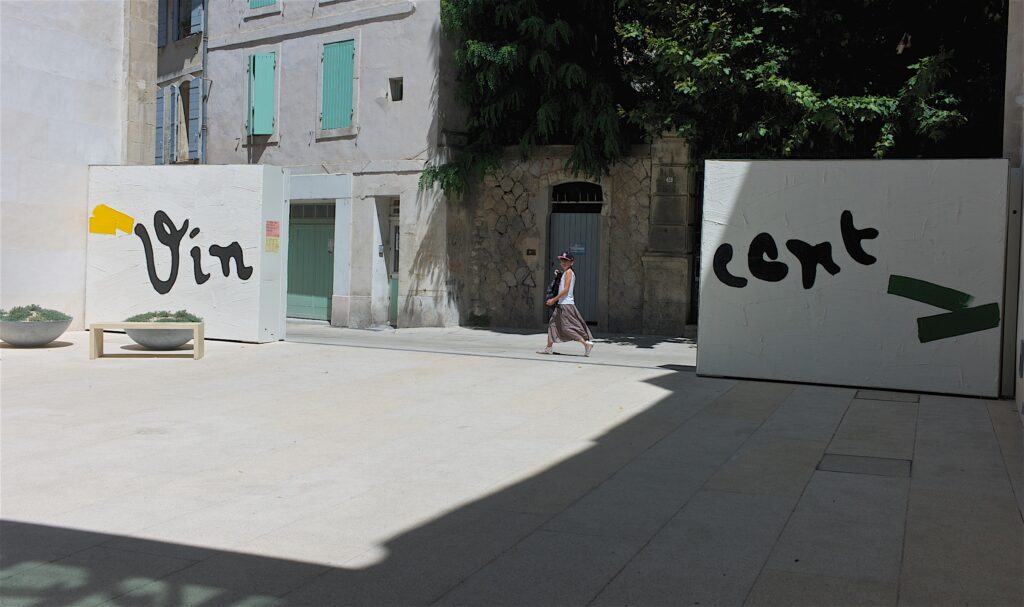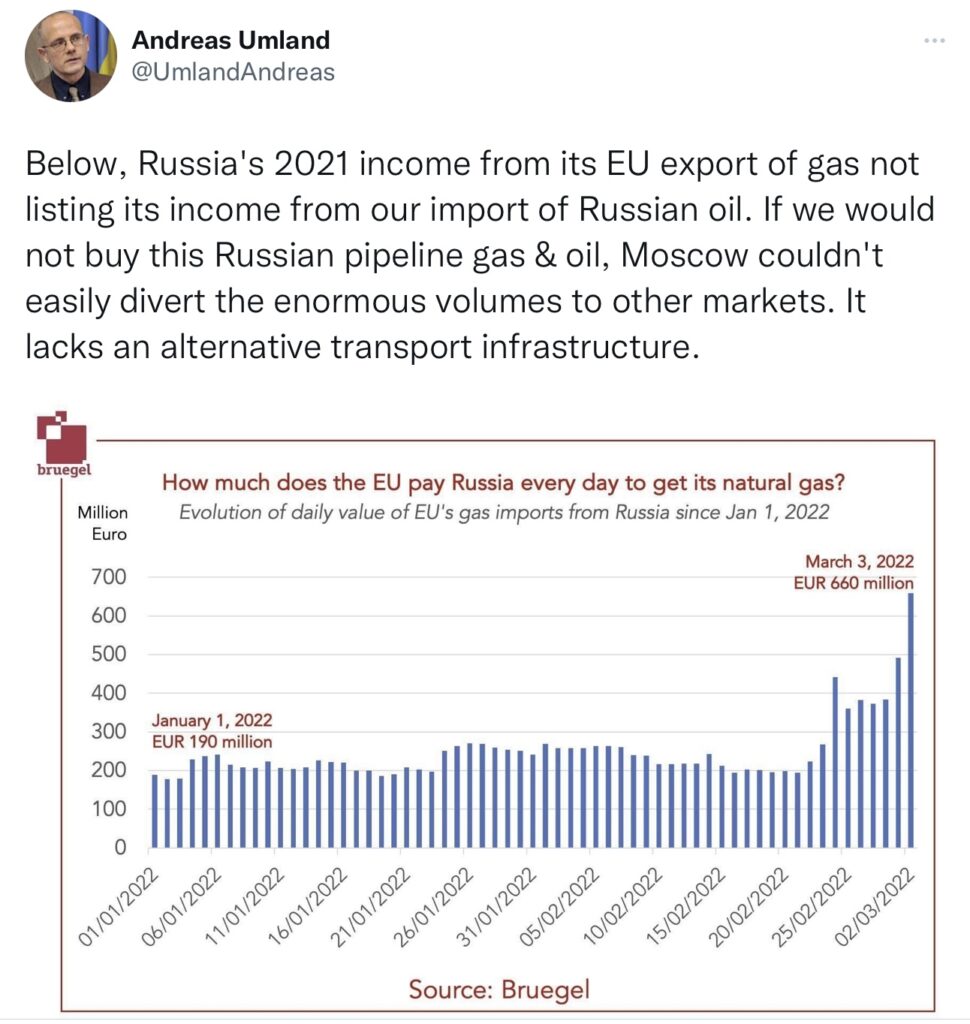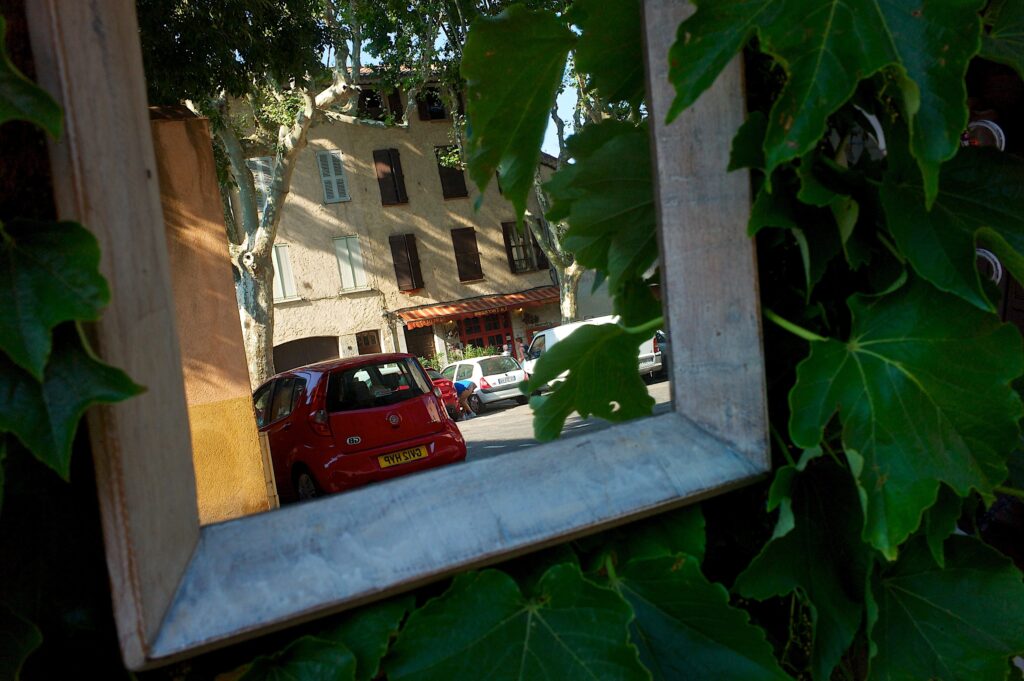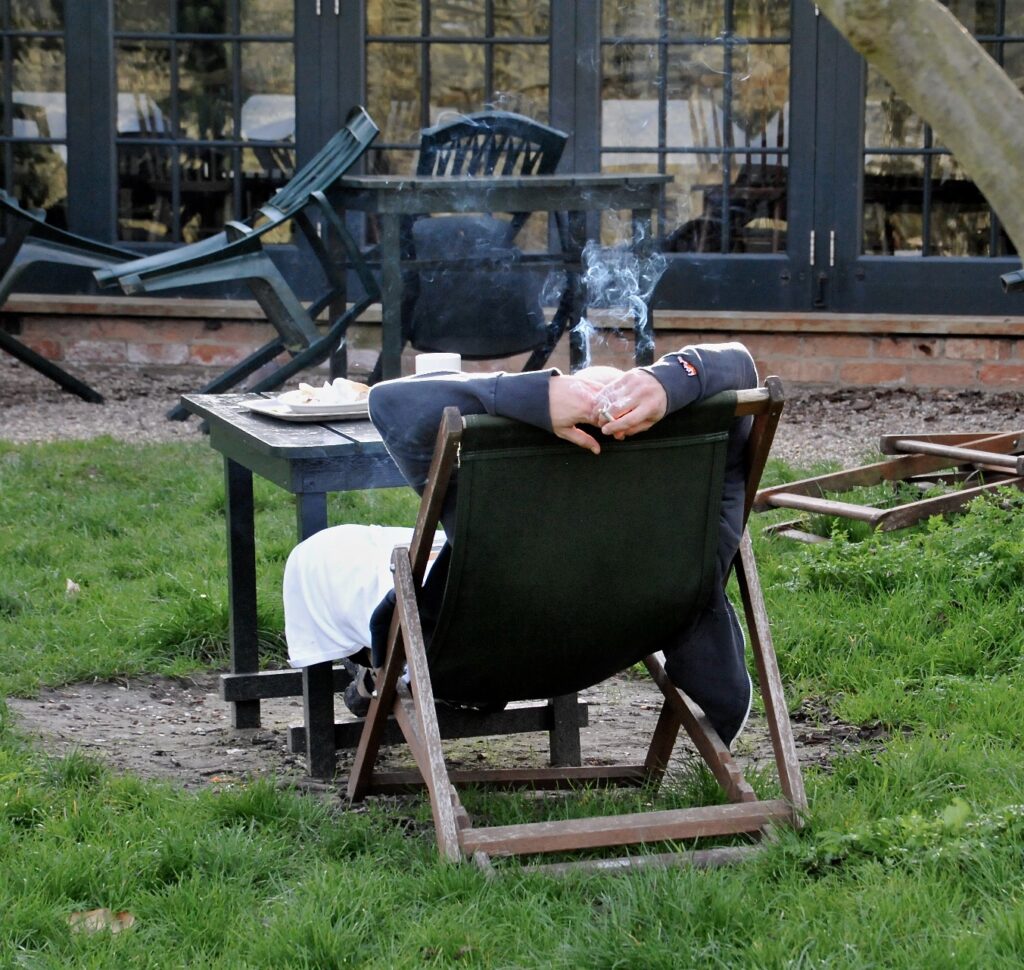Venice by night
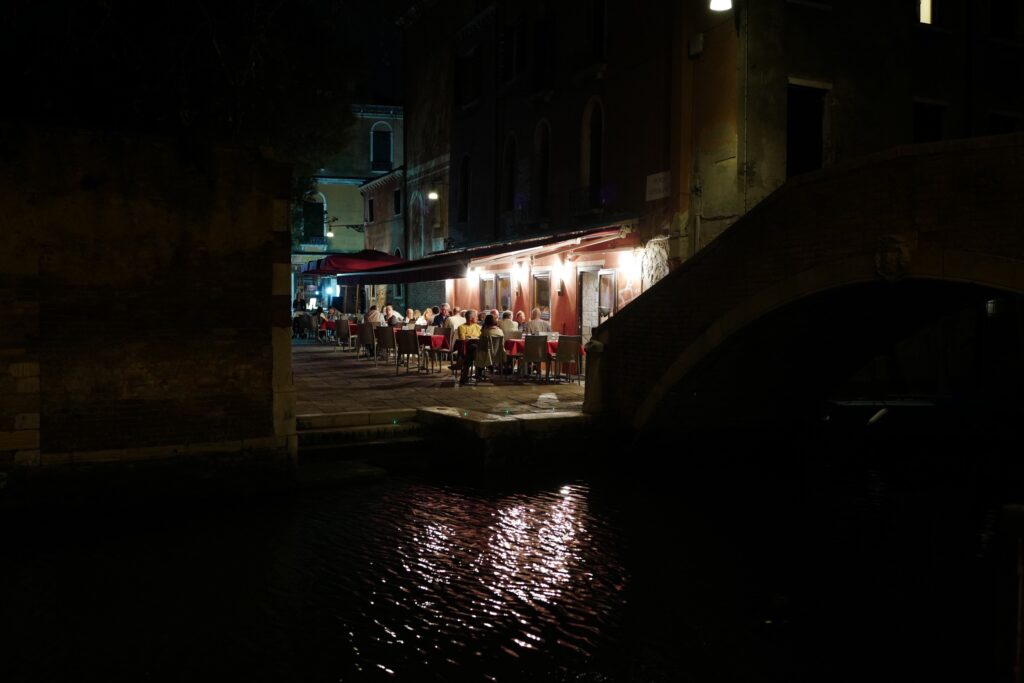
Quote of the Day
“All the clever people end up in the Cabinet Office, all the
****send up in the Foreign Office and all the brain dead morons end up in the Home Office.”
- An unnamed UK government official, in a text to Politico yesterday on the Home Office’s catastrophic failure to address the needs of Ukrainian refugees seeking entry to ‘global Britain’.
Musical alternative to the morning’s radio news
Beethoven | Symphony No.9 | Ode an die Freude (Ode to Joy)
The Kyiv Classic orchestra played this in Maidan Square yesterday. I couldn’t find a recording of the entire performance, but I thought that this flash-mob performance from (I think) Spain fitted the mood. And of course it’s also the EU’s anthem, which makes it extra poignant. Watch the video and marvel at the children’s responses to the performance.
Long Read of the Day
The Dawn of Uncivilization
Remarkable essay by Peter Savodnik about Western (and particularly US) hubris, post-1989.
Here’s a sample from his time as a post-Soviet-collapse American reporter in Russia.
On one of those reporting forays, I wound up in Khabarovsk, seven time zones away from Moscow, where I’d gone to write about a Ukrainian stripper and her husband, an American G.I. who’d gotten himself in trouble. On my last night in town, I went to a dinner party in a microscopic, poorly lit Khrushchyovka, one of the countless apartments built under Nikita Khrushchev.
Toward the end, after all the vodka, the herring, the soup, the dumplings, more vodka, black bread, more vodka, one of my hosts, an older gentleman who had been a professor of literature, told me, as so many Russians had, “You can give up writing philosophical articles about Russia. You will never know it.” Ah, yes, this again. My outsiderness. “My sunny disposition doesn’t prohibit me from writing about your country,” I said, a bit too earnestly, in very stilted Russian that I had spent years slaving away at. Speaking slowly to make sure I didn’t miss anything, he replied: “It’s not your sunny disposition. It’s your frame of reference. Your frame of reference is America. But Russia does not want to be America. Russia exists in a parallel universe.”
At the time, I thought, Russia doesn’t know what it wants. There was little doubt by then about Vladimir Putin’s orientation, but Russians were another matter. It wasn’t just that they liked American popular culture—everyone did. It was that there was too much interaction between us and them. Too much business, cultural exchange, hop-scotching between New York and Moscow and Los Angeles and Vladivostok. We were connected now. Was that not validation of the Great American Promise?
In retrospect, the professor saw something—everything—that I did not.
We were not at the start of something brilliant and beautiful, but in the middle of a very short in-between…
There’s lots more like that. It’s a very interesting piece. And it has a chilling closing para:
Vladimir Putin knows how much daylight there is between hard geopolitical reality and American rhetoric. But we prefer to hew to the old platitudes. They make us think that we can rewind or undo or make things better if we just say the right things. It is time to imagine what our president seems incapable of: a new order, jungle-like, shot through with the fevers and hatreds of the world as it had always been before. Uncivilization.
The new Silent Majority — people who don’t tweet
In the findings of a fascinating survey by the Pew Foundation on social media use in the US there’s one amazing discovery: only 23% use Twitter — which means that over three-quarters of American Internet users have never tweeted.
This has all kinds of interesting implications, of which the most important is that old and new media should stop treating what appears on Twitter as representative of society as a whole. It’s actually a weird and unrepresentative subset of humanity — the part of it that has short attention spans and a tendency to outrage, over-excitement, virtue-signalling and sometimes hysteria. And the fact that something is ‘trending’ on Twitter tells us nothing other than that particular subset of humanity is excited about it.
I’ve used Twitter a bit ever since it first appeared (I’m @jjn1), and for a time I celebrated it as the newswire service for the ordinary person, not just the mainstream media. I understand that some of my friends and colleagues put it to very good and serious uses, and admire them for that. But most of the time I can only tolerate Twitter in short purposeful bursts. And I found my feed became a good deal less annoying when I found a way of turning off retweets.
More on the Victorian “gauge wars”
One reader was unimpressed by Patricia Fara’s piece that was yesterday’s Long Read. He writes:
Patricia Fara’s ‘History Today’ piece badly exaggerates the duration of the dispute over railway gauges. She herself says: ‘The 1846 Act decreed that future tracks should all be narrow gauge, but it permitted the broad track ones to remain and – crucially for Brunel – to be extended.’ The only new broad gauge lines built after that were contiguous with the existing routes. Making them narrow gauge would have inserted two extra changes of gauge, for example crossing from Plymouth into Cornwall. She continued, ‘Brunel kept building and kept fighting, although by the end of the century he had admitted defeat.’ Actually, he died in 1859. From then on, the difference of gauges was a problem for the GWR, which spent 30 years and a lot of money changing its tracks and its trains to standard gauge. It thus fell behind other railways in improving its routes and services for the growing traffic of the 1860s-1880s. And she fails to make a crucial point about lessons for today, that HS2, by being built to different standards (but not a different gauge) is not properly compatible with the existing network. As for Queen Victoria, the only reason for going from Portsmouth to Aberdeen via Gloucester could have been that she wanted to enjoy the scenery: it would have been (and still is today) shorter and quicker to go via London – all on standard gauge.
This Blog is also available as a daily email. If you think that might suit you better, why not subscribe? One email a day, Monday through Friday, delivered to your inbox. It’s free, and you can always unsubscribe if you conclude your inbox is full enough already!

